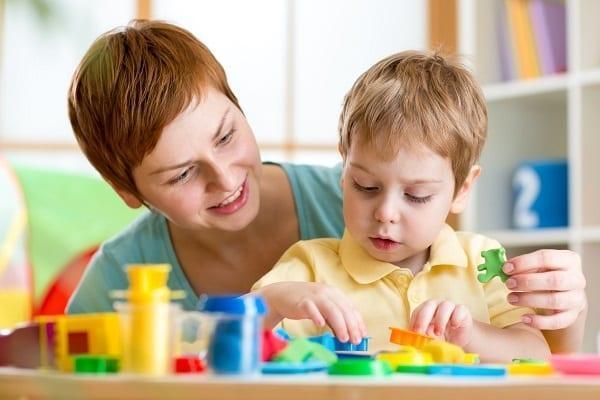Everything you need to know about developmental pediatrics
Everything you need to know about developmental pediatrics
Pediatrics is the science of the distinctive features in the structure, functions, and diseases of the child's body, and based on those features, the preservation of health and the treatment of diseases in children.
In other words, the main task of pediatrics is to preserve or return (in case of illness) the state of health to the child, allowing him to fully realize his innate life potential.
Developmental pediatrics is the science of developmental and clinical epidemiology, a holistic approach to the child, family, and social environment. Assessment of cognitive function (such as thinking ability, learning ability, problem-solving ability), language ability, speaking ability, relationship building, emotionality, movement, self-defense, and behavior. It is an industry-focused on prevention, early diagnosis, and developmental difficulties. Developmental pediatrics helps to find a scientific approach to the treatment of children with disabilities, general developmental problems.
Developmental pediatrics has become a sideline of pediatrics in many countries. The Department of Developmental Pediatrics opened in the United States of America in the 1980s. There is an international association (Development Pediatrics Society) that annually publishes journals and scientific articles. Countries engaged in Development Pediatrics Research: Germany, USA, Argentina, Australia, Brazil, China, Philippines, Finland, France, South Africa, India, Netherlands, Japan, UK, Israel, Italy, Sweden, Canada, Malaysia, Egypt, Norway, Russia, Saudi Arabia, Thailand, New Zealand, and Greece.
Often, child development is subdivided into specific segments, which, although they overlap significantly, are still useful for pediatric research purposes. The main directions of the child's development are:
- Development of motor skills, which includes gross motor skills (sitting, walking, climbing stairs) and fine motor skills (gripping small objects, drawing).
- Language development, language understanding, and speaking skills. Expressive speech delays are usually not associated with other developmental delays; however, it is important to monitor all children whose development is too late to prevent further developmental delays. It is also important that the study of any delay begins with hearing control.
- Cognitive development, that is, the child's intellectual maturation, which is assessed in the early years mainly through observation of language, curiosity, the ability to solve problems, understand the concept of time, and the ability to focus simultaneously on more than one aspect of an event or situation.
- Emotional and behavioral development, which naturally depends on the character and personality of the child and includes the expression of his or her feelings about the outside world and the development of social and interpersonal skills.
Of course, there is no specific time when all children must learn to walk or hold a spoon, but various studies have established what is the average age for reaching certain stages, as well as the intervals of normality. Child development progress, however, remains variable, as is the case for children who start to walk late but speak earlier than other children. Many genetic, psychological, and environmental factors (for example, nutritional intake or stimulation), as well as the influence of possible diseases, affect the variability of a child's development in different areas. Development is monitored and evaluated continuously.
Worldwide, child mortality is decreasing, but morbidity and problems are increasing. The proportion of children with disabilities requiring diagnosis, treatment, and follow-up is 13-17%.
Developmental pediatricians treat the following conditions:
- Premature babies and those born with perinatal problems
- Children with Down syndrome
- Children with difficulty speaking, cognitive problems, communication problems, movement.
- Children with chronic diseases affecting all organs
- Children with nutritional and sleep problems
- Children with problems affecting the development of movement, especially cerebral palsy
Children in their development go through 7 "critical" periods, during which the highest probability of damage to the body and the development of diseases:
- The most dramatic period is the stage of intrauterine development of the embryo (1st trimester of pregnancy) and the fetus (3rd trimester of pregnancy). At this time, there is a high probability of death of the nascent organism, the occurrence of congenital anomalies, and intrauterine infections.
- Newborn period (0-28 days of life). By the time of birth, the developed vital organs and systems of the child provide him with an independent existence.
- The period of infancy - from 28 days to 1 year. It is a very important and responsible time. By the age of one, the baby is already a conscious being, actively responding to everything around him. The child's weight is already 3 times more than at birth, and his height has increased by 25 cm.
- Nursery age - from 1 to 3 years. During this period, basic skills and functions are mastered - speech develops, the child begins to understand a lot, dresses himself, becomes more and more interested in the world around him. A lot during this period depends on the correct upbringing of the child.
- The early preschool period - from 3 to 7 years old - is characterized by the formation of the higher nervous system, most of the biochemical parameters, accelerated growth, the formation of chronic diseases, neurotization. It is very important to help your child develop correctly and harmoniously.
- School-age is a responsible time for the formation of a human personality. It is necessary to help the child to cultivate character, choose a business to his liking, and determine a profession for his future life. And here the teacher and parents can have a good assistant - a pediatrician.
- The adolescent period - from 15 to 18 years old - is an extremely crucial period of growing up. In the body of a teenager, a significant restructuring of many functional systems occurs, and puberty begins. It is accompanied by significant shifts in the endocrine system, with the normal or even slow development of other systems - the central nervous system, cardiovascular, etc.
Be the first to post a message!
